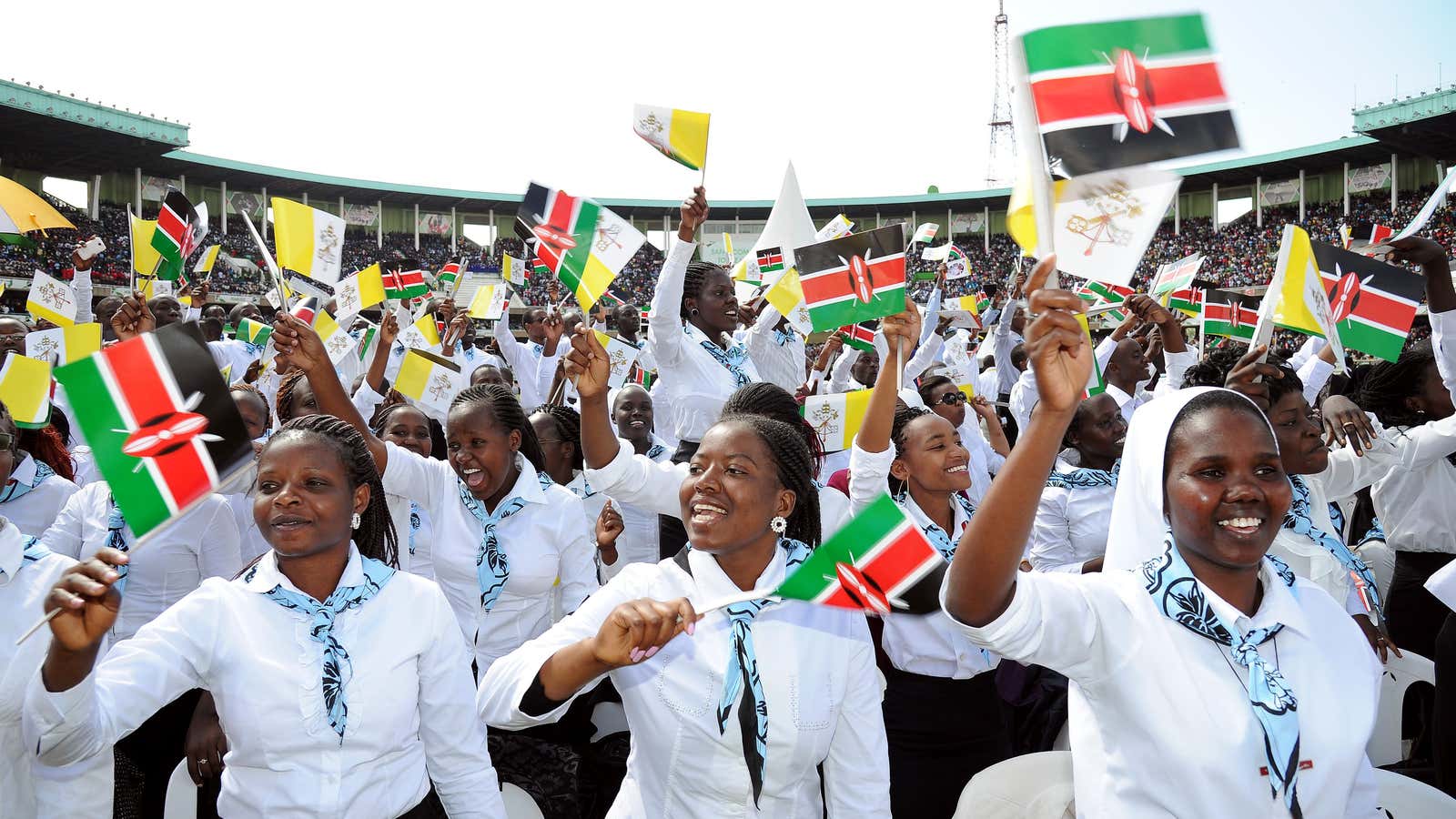“Kah-ri-ye!!” That is my earliest memory of hearing my English name spoken and it dates to the early 90s on the field at my primary school in Nairobi. Even then, that name felt like an older sibling’s hand-me-downs never quite fitting well.
Carrie.
That was my name, but I never quite knew how to pronounce it. It was there on all my official documents and on the tip of my tongue for whenever I was asked, “What is your Christian name?”
In the naming convention of the Kikuyu people, I as the second daughter of my parents, was named after my maternal grandmother.
“Kah-ri-ye, what a strange name. Where did your cucu get that name from?”
“Missionaries.”
I never gave much thought to why all my classmates in an African country had names such as Rose, Catherine, Jeffrey, Lawrence. All I knew was that these were our Christian names. These names plus our baptism assured us of our place in heaven. It was as simple as that. We needed Christian names.
It is said that the British colonialists decided to give Kenyans Christian names as they could not pronounce our African names. This explanation sounds plausible given they did mispronounce Mt. Kirinyaga as Mt. Kenya. Kenyan Catholics also needed to acquire a European saint’s name in addition to their existing English name during baptism. In the psyche of the Kenyan mind, Christian names came to be seen as formal, official, a sign of being educated, no longer a heathen, saved from one’s primitive nature. Long after the country gained independence, this mentality remained.
Kenya’s first president, Jomo Kenyatta (among many other figures), is credited with saying “When the missionaries arrived, the Africans had the land and the missionaries had the Bible. They taught us how to pray with our eyes closed. When we opened them, they had the land and we had the Bible.”
Even after Kenya gained independence, we remained strong custodians of the religion they left us and the names that came with following this religion.
Many years later, I went to the US to study. The Africans I met, particularly many of the Nigerians, instantly made me start questioning all I had grown to believe was normal. Omoshalewa, Olayemi. I would introduce myself to other Africans and wait for the moment when they would say their “Christian” name, but this moment never came. I remember that sudden realization that there were other black Africans such as myself roaming the world with no European names. Did my Nigerian Christian friends know that they were saying goodbye to heaven by refusing to take up proper “Christian” names—even if they did go to chapel every Sunday?
I started reflecting deeply on my name and the connotations it had. Growing up, the thought of not having a Christian name was as good as loudly revealing yourself to be a heathen. Of course, there had been famous Kenyans with no English names, but they were all what would be thought of as rebels at the time or activists. Wangari Maathai—the Kenyan Nobel prize laureate, who was also known as Mama Miti (mother of trees) for her conservation work. Koigi wa Wamwere—a politician, human rights activist and writer. Wambui Otieno—who was a freedom fighter, an activist and writer.
Carrie. I believe I only learned how to pronounce my name the first time I watched Sex and the City. Before then, I had mostly been making educated guesses about how it should be pronounced, but I always doubted it was “Kah-ri-ye.”
I reflected on this name and what it took away from me. I imagined a distant future where I would have no Kenyan accent and would be walking around the US with this name. In time, no one would ask me “Where are you from?” because I would have no foreign accent and a generic English name.
In time, my descendants would not have any defining features to place them in Kenya—nothing to remind them that my family’s origin was on the foothills of Mt. Kenya. The story of the origin of my name would be lost forever. They would never know of when Ngai (God) created the first Kikuyu man and woman—Agikuyu and Mumbi, placed them on the slopes of Mt. Kirinyaga and gave them nine lovely daughters—one of whom was known as Wanjiku (commonly shortened to Ciku.)
In the recent past, I have met many other Kenyans (and other Africans) who have dropped their European names. Everyone’s path is different—I have a friend who dropped hers when she learnt that her name was the exact name of the colonial governor who oversaw the mass incarceration, torture and murder of tens of thousands of Kenyans who fought against British rule. Another dropped her English name for always feeling like “a stranger” in that name.
In my generation, there are Kenyans who have opted not to give their children any European names. Growing up there was always the mentality that an European name was needed for official purposes, but there is no legal obligation to have such a name on one’s identification documents. I think many people still believe that is the case. That’s why it seems Kenyans opting out of having European names for their children is still an exception rather than the rule.
Kenyan writer Ngũgĩ wa Thiong’o, who has written extensively about decolonizing African minds and language says “Language, any language, has a dual character: it is both a means of communication and a carrier of culture.” By having the name, Carrie, I wondered whose culture I was carrying on and which one I was letting go of.
So with that reflection and that determination, one day in my Sophomore year in university, I sent an email to all my friends and family:
“From this moment henceforth, I am Ciku.”
